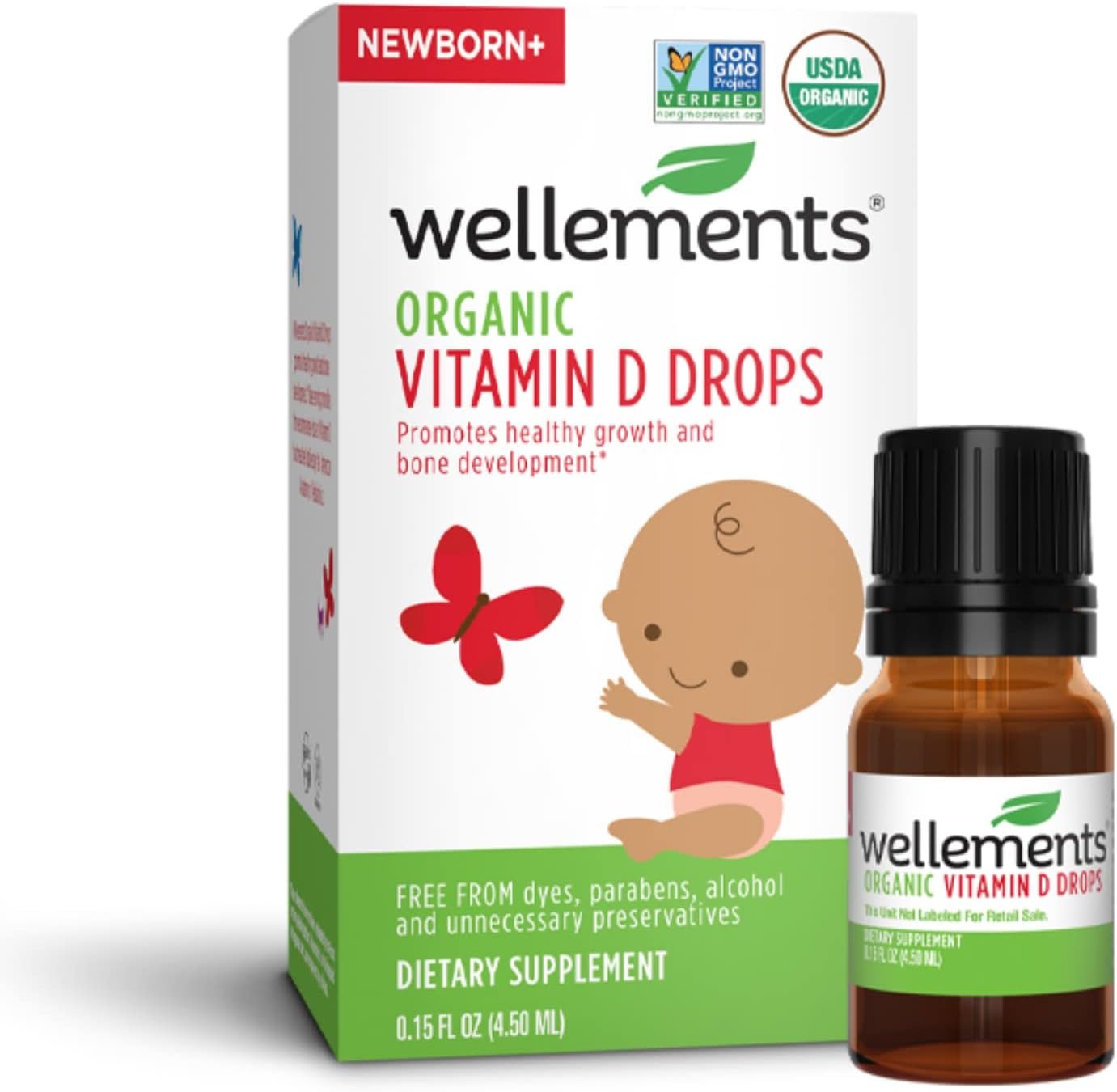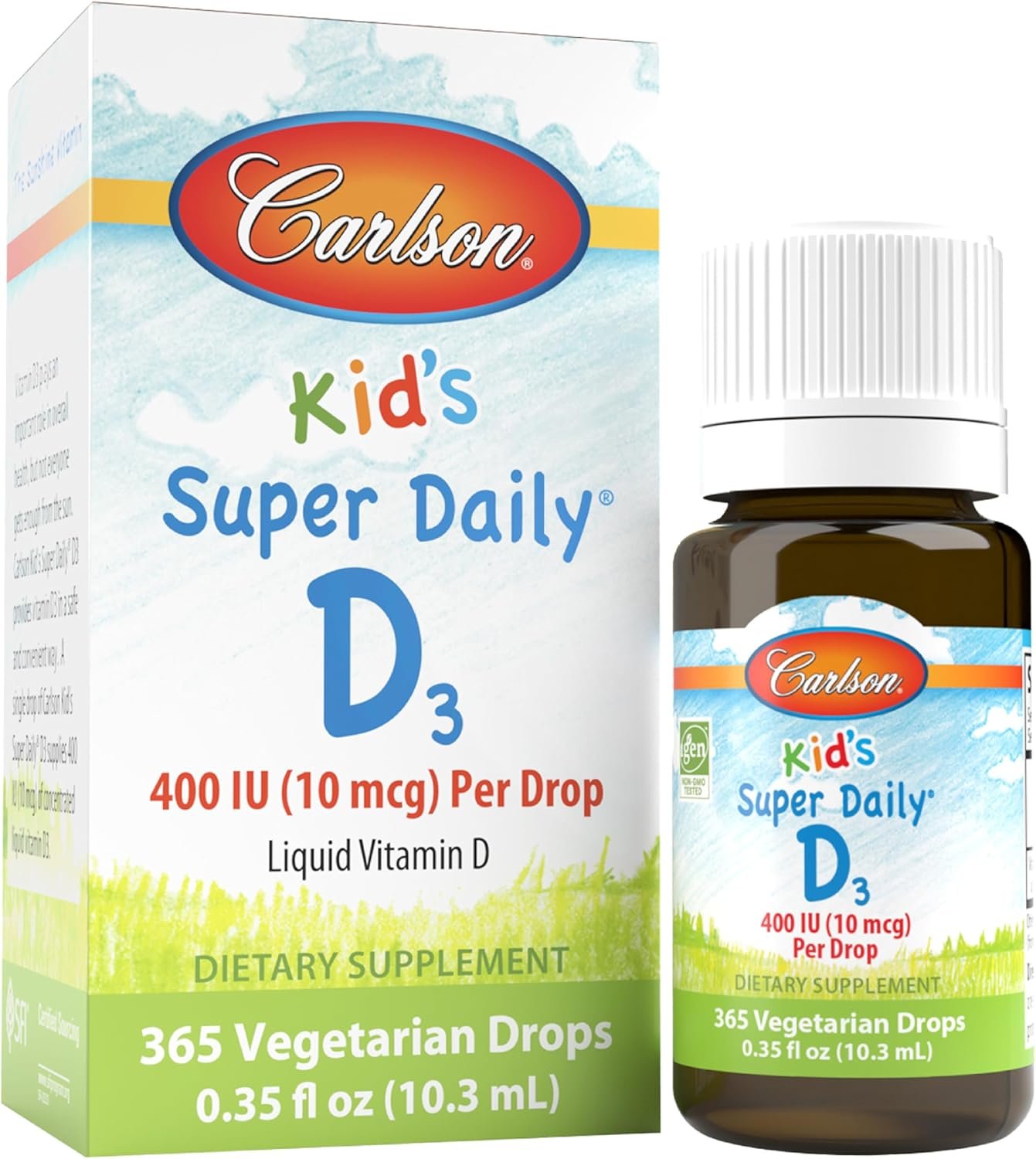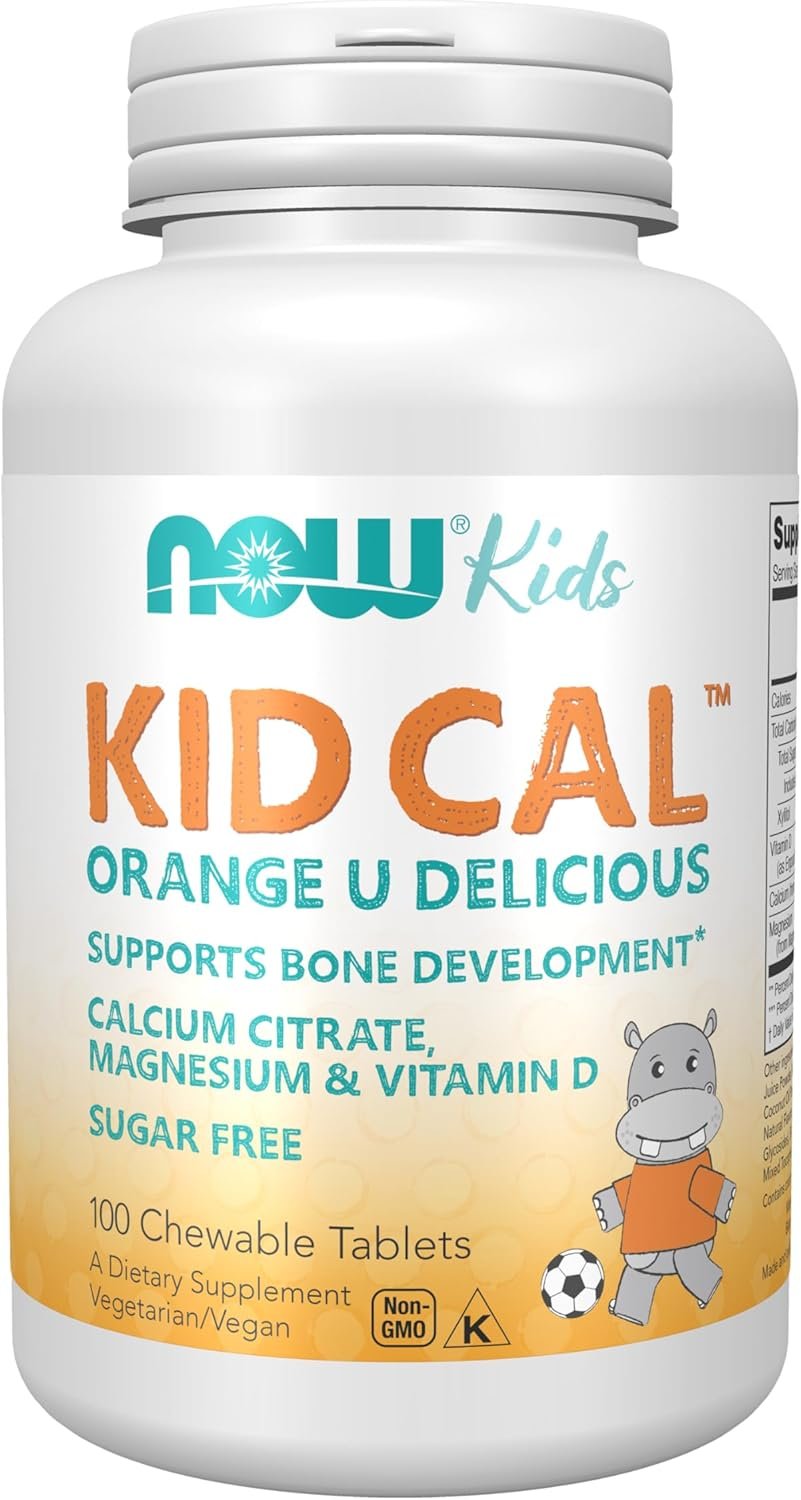Best Vitamins for Kids and (Does Your Child Even Need One?)
This blog contains affiliate links, meaning that if you choose to purchase a product through a link, I will receive a small commission - this in no way impacts the amount you pay. Affiliate links are marked with an asterisk (*).
Spoiler alert - the answer is likely no!
If you’ve passed through the vitamin aisle in the grocery store, you will likely have seen a mountain of products marketed toward children. You may have asked yourself, “Does my child need a multivitamin?” “If so, how do I decide which one?” As a pediatric registered dietitian, many families in my private practice ask the same questions.
A well-balanced diet should ideally provide all the vitamins and minerals a child needs. However, multivitamins or specifically targeted supplements may be helpful in certain situations.
In the following post, we’ll explore whether or not children should take multivitamins in general, as well as how to meet their nutritional needs and address potential nutrient deficiencies.
What is a “healthy” diet for kids?
A balanced and varied diet is the foundation of good nutritional health for children. It provides the necessary nutrients for growth, development, and overall well-being. Fruits, vegetables, whole grains, lean proteins, healthy fats, and dairy products (or fortified soy alternatives) offer the wide range of essential vitamins and minerals kids need..
When selecting foods and beverages, choosing options full of nutrients and limited in added sugars, saturated fat, and sodium is best. Try your best to offer a variety of foods in three balanced meals and two balanced snacks at regular intervals throughout the day, keeping in mind that all foods can fit into a healthy eating pattern in moderate amounts.
What causes common nutrient gaps in children’s diets?
Individual dietary patterns and circumstances may affect nutrient intake. Factors such as picky eating, food allergies, dietary restrictions, cultural practices, and socio-economic constraints can lead to nutrient gaps.
Some common dietary restrictions include dairy-free, gluten-free, and alternative diets like vegetarians and vegans. Chronic diseases, like Crohn’s and celiac disease, and food allergies can also prevent the absorption of crucial vitamins and minerals.
While not all children with these dietary patterns may need supplementation, working with a dietitian or pediatrician is essential to ensure your child gets the proper amounts of nutrients if they fall into one or more of the categories listed above.
Note: the majority of picky eaters will likely get the majority of their vitamin and mineral needs met through their diet!
What are common vitamin deficiencies in children?
Monitoring a child's nutritional status helps identify potential deficiencies or imbalances. Let’s look at some vitamins and minerals that may need routine supplementation for some children:
Vitamin D
Vitamin D is a vital nutrient that supports bone growth, regulates calcium levels, reduces inflammation, and improves immune function. It may also help with preventing depression. It is found in some foods like salmon, yogurt, cheese, and mushrooms and is also produced in our bodies when we get natural sunlight.
Some kids are more at risk for vitamin D deficiency if they have little sunlight exposure, have darker skin color, are lactose intolerant, or eat a vegetarian or vegan diet.
According to the American Academy of Pediatrics, about 42% of Americans are deficient in vitamin D. “Among children between 1 to 11 years old, an estimated 15% have vitamin D deficiency. And researchers have found that 17% of adolescents and 32% of young adults were deficient in vitamin D.” Vitamin D is the only supplement that the AAP routinely recommends for all children.
Babies under 12 months need 400 IU of vitamin D daily, while children 12 months and older need 600 IU daily. Exclusively formula-fed babies will get their daily recommended amount of vitamin D in their formula; however, for any baby fed less than 32 oz of formula daily, it is advised to supplement with vitamin D.
All exclusively breastfeeding mothers should supplement their baby with 400 IU of vitamin D. Alternatively, new research shows that if a mother is taking 6400 IU of vitamin D daily, she will be able to provide enough Vitamin D to her infant in her breast milk.
Supplementing babies and toddlers with liquid vitamin D is best because gummy vitamins can be a choking hazard.
Children with an increased risk of vitamin D deficiency, such as those taking certain medications like laxatives or seizure-preventing medications, and with chronic diseases, such as cystic fibrosis, may need higher doses of vitamin D.
If you don’t believe your child is getting enough vitamin D, talk to your pediatrician or dietitian about taking a vitamin D supplement.
Shop my favorite vitamin D supplements for babies and kids here.*


Iron
Iron is a naturally occurring mineral that helps our bodies carry oxygen from our lungs to our cells. According to the Mayo Clinic, some infants and children have a higher risk of iron deficiency, including:
Premature babies or babies born with a low birth weight
Babies who are given milk instead of formula or breast milk before age 1
Breast-fed babies who aren't given iron supplements early on and/or iron-rich complementary foods starting at 6 months old
Babies who drink formula that isn't fortified with iron
Children age 1 to 5 who drink more than 24 ounces of milk (cow’s, goat's, or soy milk) per day
Children with chronic infections and/or restricted diets, such as vegetarians or vegans
Children who have experienced exposure to lead
Children who don't consume enough iron-rich foods
Children with excess weight
Severe iron deficiency can cause serious problems with growth and development, so it is important to monitor iron levels in your child. Most pediatricians will check iron levels at 12 months and sometimes again at 24 months.
Babies are born with iron stores in their bodies that become depleted around 6 months of age. This is why healthcare providers recommend eating foods high in iron when babies start eating solid foods around 6 months of age. It is best to pair foods high in iron from plant sources with foods high in vitamin C to increase absorption.
Good sources of iron include beef, poultry, fish, whole grains, iron-fortified grains and cereals, leafy greens, nut and seed butters, beans, and lentils.
Iron supplementation can be beneficial for those with iron-deficiency anemia. However, it is essential to consult a healthcare professional or dietitian to assess individual needs and determine appropriate dosages.
Shop my favorite iron supplements for babies and kids here.*
Omega-3 Fatty Acids
The three primary omega-3 fatty acids are alpha-linolenic acid (ALA), eicosapentaenoic acid (EPA), and docosahexaenoic acid (DHA). ALA is found mainly in plant oils such as flaxseed, soybean, and canola oils. DHA and EPA are found in fish, other seafood, breast milk, and formula.
Omega-3s are important components of the membranes that surround each cell in your body. DHA levels are particularly high in our eyes, brain, and sperm cells. Omega-3s also provide calories to give your body energy and have many functions in your heart, blood vessels, lungs, immune system, and endocrine system.
To maintain adequate levels of omega-3s, try serving these foods to your child regularly:
Salmon
Sardines
Oysters
Beef
Walnuts
Soybeans
If your child is not breastfeeding or formula feeding or does not eat the foods listed above a few times per week, you may want to supplement with omega-3.
Shop my favorite omega-3 supplements for babies and kids here.*
Vitamin B12
Vitamin B12 is a nutrient that helps prevent anemia and supports healthy neurological function. It is naturally found in many meats and animal products and can also be found in some fortified non-animal products like nutritional yeast. Clams and beef liver are some of the best sources of Vitamin B12.
Most babies and children will get their recommended amount of Vitamin B12 through their diet; however, some conditions make it hard to get enough B12 without supplementation.
For example, if a breastfeeding mother is vegetarian or vegan, or a child is fed a vegetarian or vegan diet, they should supplement with B12. Formula-fed vegan infants use a special fortified formula to meet their B12 needs.
People with stomach and intestinal conditions like Celiac disease and Crohn’s disease frequently have difficulty absorbing enough B12 and may need a supplement. Pernicious anemia is when the body cannot absorb the B12 that is eaten and must get Vitamin B12 injections to help support healthy levels of B12.
Shop my favorite vitamin B12 supplements for babies and kids here.*
Calcium
Kids need calcium so their bones can grow healthy and strong. Most children can get enough calcium from their diet when they eat a variety of foods; however, if a child is eating a plant-based diet, they may need to work a little harder to get the recommended amount of calcium because some plant-food sources contain a substance that reduces the amount of calcium the body absorbs.
A few good sources of calcium include dairy products like milk and cheese, fortified orange juice, soy milk, tofu, soybeans, fortified breakfast cereals, spinach, chia seeds, and bok choy.
Shop my favorite calcium supplements for babies and kids here.*
Should my child take a probiotic?
Probiotics are supplements or foods that contain live bacteria that cause alterations to the bacteria in the gut and other places in the body. Probiotics are naturally found in many foods, including sauerkraut, yogurt, kefir, and kimchi. The most common types of probiotics are strains of bifidobacteria and lactobacilli.
Probiotics are essential to the immune system and may play a role in disease prevention, gut health, skin health, and neurological function.
There has been a lot of research in recent years on the use of probiotics in children with a lot of promising potential; however, evidence is still not there to support the long-term use of probiotics in infants and children.
There are benefits seen in the use of probiotics early in the course of diarrhea from acute viral gastroenteritis, and some evidence supports the use of probiotics to prevent antibiotic-associated diarrhea, but no evidence that it is beneficial for treatment.
One significant benefit to note is that the administration of one particular strain, L. reuteri, has been shown to reduce infant colic in breastfed infants.
While probiotics are generally considered safe, they should never be given to seriously or chronically ill children due to the potential risk of illness or complications.
Shop my favorite probiotics for babies and kids here.*
What are the potential risks and safety considerations of multivitamins?
While multivitamins are generally safe, exercise caution and consider potential risks when giving supplements. Excessive intake of specific vitamins and minerals can adversely affect a child's health.
The American Academy of Pediatrics states that “many multivitamin/mineral (MVM) supplements for children contain micronutrients that children already get enough of in their diets, and some contain amounts that exceed upper tolerable intake levels (UL), an analysis of products showed.”
Fat-soluble vitamins (A, D, E, and K) can accumulate in the body and lead to toxicity when consumed in large doses. Some multivitamins contain higher levels of certain nutrients, such as iron, which may pose a risk if taken in excess.
Be sure to store your vitamins in a safe place and make sure children always know that even though some vitamins can look like candy, they can be dangerous if you eat too many. If your child eats too many vitamins, call poison control immediately (1-800-222-1222).
Also, if you give your child a vitamin, make sure it is designated for the appropriate age with the correct recommended daily amount to prevent overdose. Keep in mind that supplements are regulated by the U.S. Food and Drug Administration as food and not medications, which means there aren't any official guidelines on how much to take or for how long.
So… should my child take a multivitamin?
Probably not, but talk to your pediatrician or registered dietitian about it. Most kids don’t need them - even most picky eaters. And relying on multivitamins may create a false sense of security about diet quality and can lead to excessive intakes of certain vitamins and minerals, especially when kids are eating lots of fortified foods (like breakfast cereal).
Multivitamins should not replace a nutrient-rich diet that includes a variety of whole foods. Instead, focus on teaching children healthy eating habits early on to help foster a positive relationship with food and nutrition. Promote the enjoyment of nutritious meals and snacks to help them develop a well-rounded dietary pattern that supports their growth and development.
That being said, while a balanced diet should always be the primary source of essential nutrients, supplementing with vitamins can be beneficial in certain situations, such as addressing specific nutrient deficiencies caused by extreme picky eating, food allergies, dietary restrictions, or socio-economic factors that limit access to food.
If your child has a deficiency, a third-party tested kids’ multivitamin gummies, like this option from Naked Nutrition may be helpful, but it is best to provide a targeted supplement that provides only the nutrient or nutrients the child is deficient in to prevent excessive intakes of other micronutrients.
Again, be sure to consult with your pediatrician or registered dietitian before offering any vitamin supplements to your child so they can assess your child's specific needs and provide personalized guidance.
If you have a child struggling with picky eating, grab my FREE guide to reducing picky eating. If you want more guidance navigating picky eating behaviors in your toddler, preschooler, and school-age kids, check out my online course, Solve Picky Eating, a self-paced set of 12 modules delivered in 5-15 minute videos.
And if you need guidance around a specific nutrition-related concern, I am currently accepting new clients in my virtual private practice. I would love to meet with you to help get you and your child on track. Thanks for reading!











